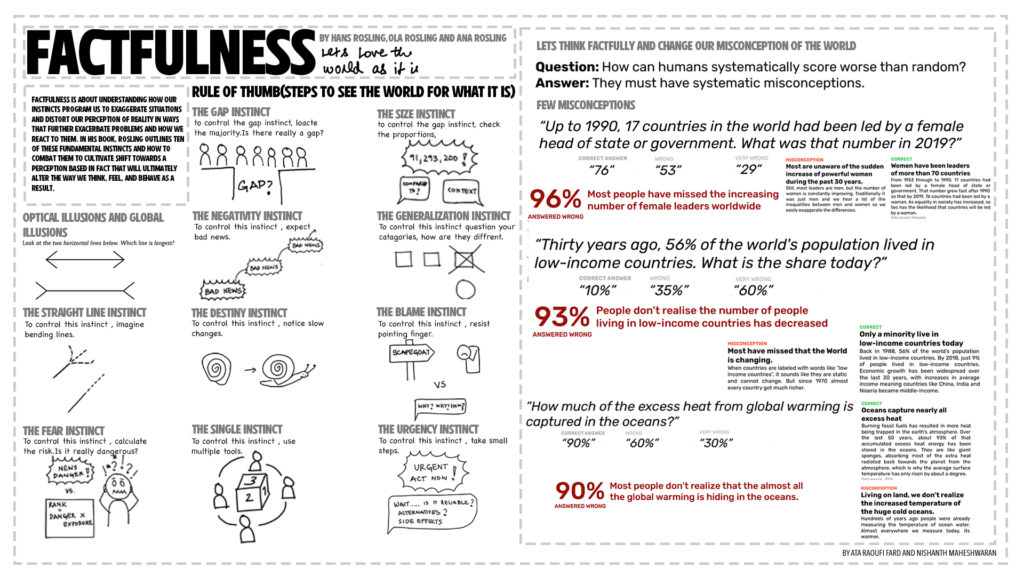Facts Matter: Visualizing the Importance of Evidence-Based Thinking
Factfulness, written by Hans Rosling, is an insightful and thought-provoking book that challenges our preconceptions about the world and encourages us to think more critically and objectively about the state of our planet. In this book, Rosling argues that many of the widely held beliefs about the world are outdated, incomplete, or simply wrong, and that we need to adopt a more fact-based approach to understanding the challenges and opportunities facing us today.
At the heart of Rosling’s message is the idea that we need to adopt a more nuanced and nuanced understanding of the world, one that takes into account the complexity and diversity of human experiences and the many different factors that shape our lives. He argues that too often, we rely on simplistic narratives and assumptions that distort our understanding of reality, leading us to make poor decisions and limiting our ability to achieve positive change.
To illustrate his point, Rosling draws on a wide range of examples from different fields, including health, economics, and the environment. He uses vivid and engaging data visualizations to show how our beliefs about these topics are often inaccurate or incomplete, and how a more nuanced and nuanced understanding can help us to make better decisions and achieve better outcomes.
One of the key themes that runs throughout the book is the idea of progress. Rosling argues that despite the many challenges facing us today, there are many reasons to be optimistic about the future. He shows how many of the indicators of human well-being, such as life expectancy, child mortality, and access to education, have improved dramatically in recent decades, and how this progress has been driven by a combination of technological innovation, social change, and political action.
At the same time, Rosling is also careful to acknowledge the many challenges and risks that we face, from climate change to global inequality. He argues that a fact-based approach can help us to better understand these challenges and to develop more effective strategies for addressing them. By adopting a more nuanced and nuanced perspective, we can avoid simplistic solutions that are unlikely to work and instead focus on the most promising approaches that are backed by evidence and data.

Overall, Factfulness is a compelling and inspiring book that challenges us to think more critically and objectively about the world around us. Through engaging data visualizations and compelling anecdotes, Rosling shows us that a more nuanced and nuanced understanding of reality can help us to make better decisions and achieve better outcomes for ourselves and for the planet.

